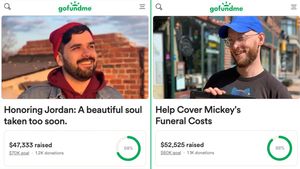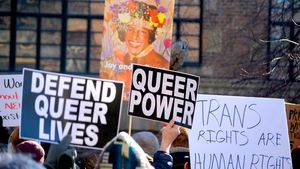First, you need to learn what the HIV criminalization statutes say in your state (check out the comprehensive data at LawAtlas.org or bit.ly/1xSSAPA) and what, if any, federal policies apply to you.
Second, you must tell all your sexual partners — before you have sex — that you are HIV-positive.
“I get the reasons people choose not to disclose their status,” says Schoettes, who is himself HIV-positive. “It’s hard to do. It’s hard to face possible rejection…it’s scary to put that information out there to someone who really has no legal obligation to maintain confidentiality.” Do it anyway.
While so many of the HIV criminalization prosecutions hinge on the issue of disclosure, you can’t avoid prosecution without disclosing, but, Schoettes adds, disclosure itself is not enough.
“You have to be able to prove it,” Schoettes explains. “You need to somehow document that disclosure with an email, a text message, a message on an app.”
The Sero Project, an organization focused on ending inappropriate criminal prosecutions of people with HIV, suggests you keep a journal and write down dates when you’ve talked about your status with your partner; videotaping you and your partner talking about your having HIV; and leaving evidence of your status (like your prescription bottles or copies of Plus magazine) in plain sight and taking photos. At SeroProject.org (or bit.ly/1xTyub6) you’ll also find a blank HIV disclosure acknowledgment form that you can ask your partner to sign before engaging in sexual activity.
Involving a third person as a witnesses can provide even more “proof” if you later have to convince a judge or jury that your partner knew your status before having sex. The ideal, Schoettes says, would be “to bring along your potential sexual partner to a doctor’s appointment” and discuss your status in front of the doctor. Still, Schoettes acknowledges, while videotaping and doctor visits may play well in a courtroom, they are “not very practical.” (That’s especially true for hookups and other casual sex, unlike real relationships, in which your partner going to the doctor with you would be more appropriate.)
The Positive Justice Project of the Center for HIV Law and Policy also recommends that you ask your medical provider to note in your records that you disclose your status prior to sex but still tell your doctor to never discuss your medical records with anyone, not even the police, without a court order (which differs from a subpoena).
There are also a few things you should avoid doing: Don’t write, email, or leave in voice messages anything that suggests you are hesitant about sharing your status; this can be used against you.
And, Schoettes adds, “never say that you are hoping or intend to infect another person with HIV through spitting or biting or any of those things.” That’s true, even if you are joking or are hoping it will stop someone from hitting or attacking you.
“First of all,” he points out, “HIV is not transmitted that way.” Secondly, he says, such statements can open you up to prosecution and be used against you to suggest you were trying to intentionally infect someone else — even though it’s not possible to do so in that manner.
Criminalization experts don’t want to scare you; they want to arm you with knowledge so you know your state laws, disclose to every sexual partner and, at the very least, confirm your HIV status via email, text, Facebook, or instant messaging (and make sure you save a copy where it won’t be deleted).
If you do get arrested, contact Lambda Legal’s help line (866-542-8336) or Sero Project for a referral (info@seroproject.com). And a final word of advice that Schoettes and other legal experts agree on: Never talk to the police about your status or consent to a blood test. If you haven’t been arrested, you aren’t legally compelled to answer their questions. If you have been arrested, you should say nothing except “I want a lawyer.”















































































